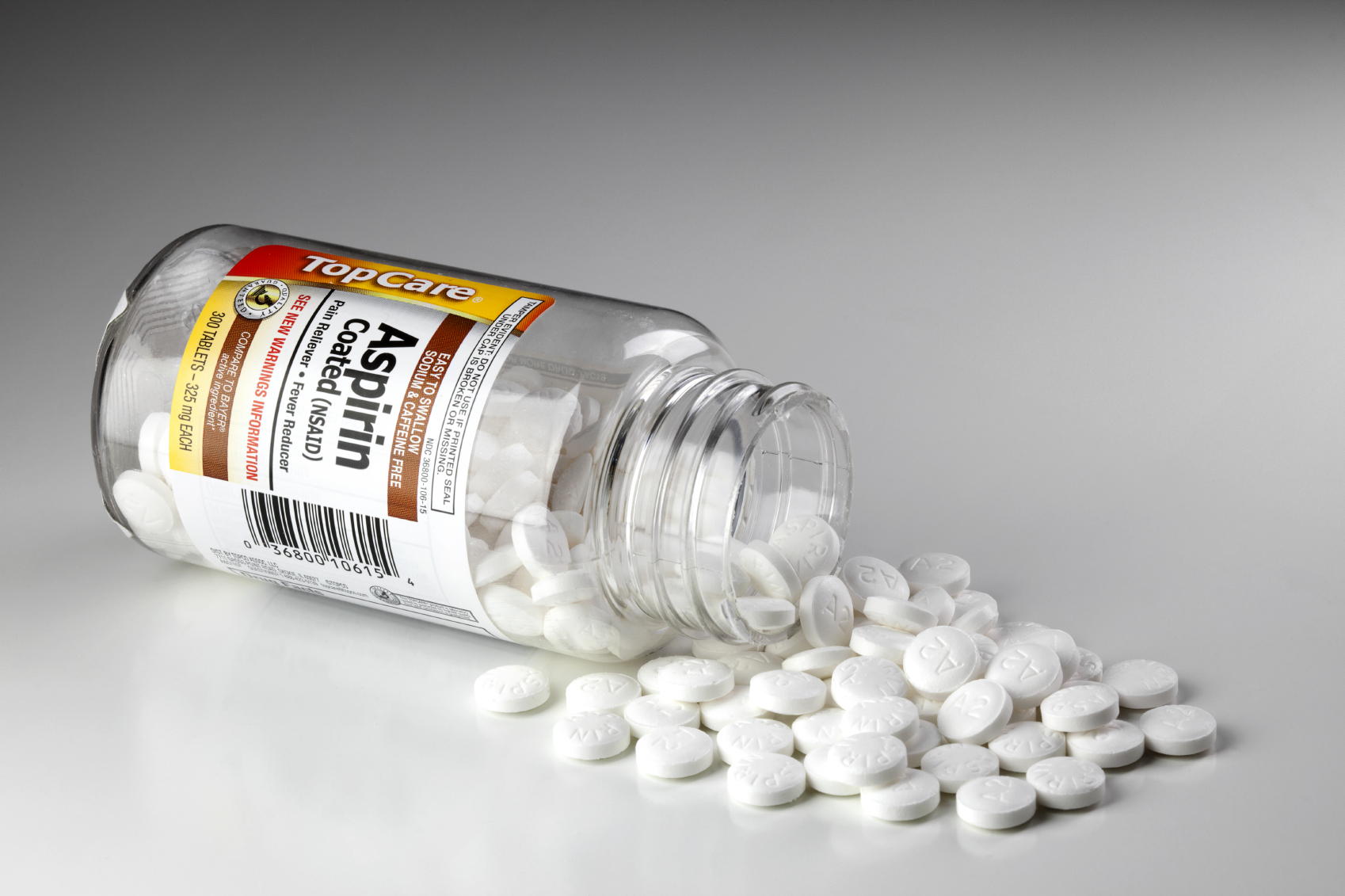It looks like Big Pharma’s greed may have gotten the best of them… Bayer recently asked the FDA for permission to change the label on their aspirin bottles. They wanted it to include language stating that it can help users prevent heart attacks. The FDA shut down their request.1 And for good reason…
The FDA says that the research doesn’t support Bayer’s theory. They claim aspirin just doesn’t work as a preventive medication for people who haven’t had a heart attack or other heart problems. Shockingly, the FDA even goes a step further.
They point out that while there are no established benefits to aspirin, there are established risks.2 Talk about an understatement…
Aspirin is a financial gem for Bayer. It brought in nearly $1.3 billion in sales last year alone. About 40 million Americans take it every day to help avoid heart events. But aspirin won’t help your heart.
In fact, research shows it may do the exact opposite.
One study looked at nearly 40,000 women. They were all over 45 years-old. Each of them took either 100 mg of aspirin or placebo every other day. This lasted for over 10 years. Researchers found that aspirin didn’t accomplish much on the heart attack front… It only decreased risk by about 2%. But a number that low could have been pure chance. Yet there was one significant number…
The aspirin group was 40% more likely to need a blood transfusion. And not just in general. It was because of gastrointestinal bleeding.3 But this isn’t the only study showing how ineffective—and dangerous—taking aspirin can be.
Another study found that subjects taking aspirin nearly doubled the need for hospitalization. And the real kicker is for what put them there: Worsening heart failure.
Researchers found no evidence in this study that aspirin is effective—or even safe—for patients with heart failure. The most telling stat may be that patients in the aspirin group had the lowest percentage of days spent alive and out of the hospital.4
Even more embarrassing is that the other subjects were taking warfarin. It’s an anticoagulant drug that may cause confusion, numbness, and severe headaches. But it could also make you cough up and even vomit blood.5 Unlike aspirin, you can’t buy it over the counter. Yet aspirin was more dangerous. And this leads to the most revealing finding…
Scottish researchers found that subjects at high risk for a heart attack were 26% more likely to have one if they tried to avert it by using aspirin.6 That’s no small increase.
And Bayer wants to call this “preventive medicine.”
Don’t sabotage your heart health by using Big Pharma’s solutions. There are safer—proven—methods for protecting your heart naturally. The first step is to take control of your diet.
Eliminate grains and sugar—especially in processed foods—that cause inflammation and put your heart in danger. Replace these with fibrous green vegetables instead. Adding high-intensity exercise is another smart way to care for your heart. But these aren’t the only solutions you should know about…
Some brave doctors are finally telling the truth about what really causes—and treats—heart disease. Like the natural supplement a Mayo Clinic professor prescribes to all his heart patients…and the nutrient from fruit that may help lower cholesterol safer than a popular prescription drug.
Discover all the details on these and more, HERE.
P.S. Do you have plans set for Labor Day weekend? Make sure you find time to check your e-mail. We’ve got a big announcement coming up soon… Trust us: You don’t want to miss this.
Like this Article? Forward this article here or Share on Facebook.
References:
1http://www.newsday.com/news/health/fda-rejects-labeling-aspirin-as-heart-attack-prevention-1.7929168
2http://www.fda.gov/ForConsumers/ConsumerUpdates/ucm390539.htm
3http://www.nejm.org/doi/full/10.1056/NEJMoa050613
4http://www.medscape.com/viewarticle/482609_3
5http://circ.ahajournals.org/content/119/8/e220.full
6http://www.ncbi.nlm.nih.gov/pubmed/20946994

